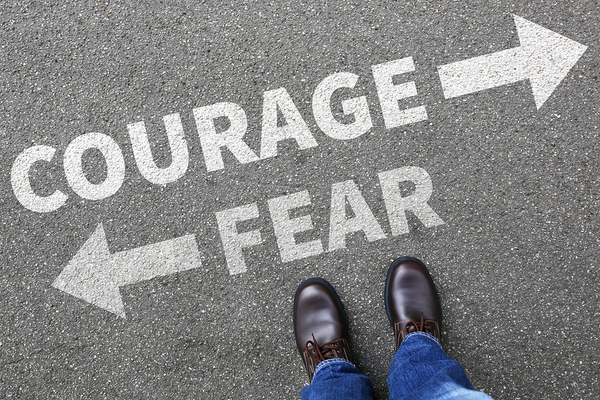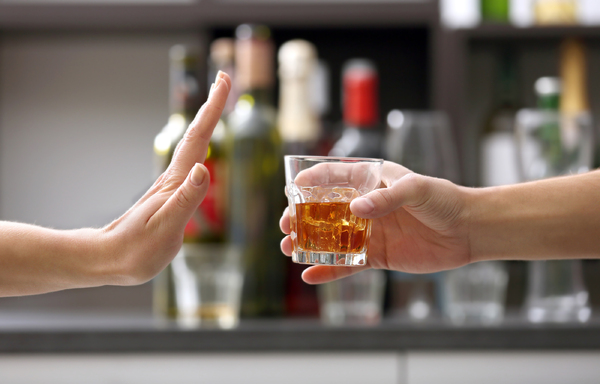“Nothing in life is to be feared. It is only to be understood. “
While this quote from Marie Curie applies to many aspects of life, it’s particularly apt when it comes to alcoholism and withdrawal. Indeed, fear of withdrawal can be an unfortunate impediment to recovery—one that can be bypassed via increased awareness about the withdrawal process.

Information, awareness, and understanding can help people with a fear of withdrawal take a step in the right direction.
Here’s a closer look at the realities of withdrawal aimed at helping alcoholics overcome the fear of withdrawal in order to get the treatment they need in order to recover.
What is Alcohol Withdrawal?
Alcoholism is a chronic disease involving a physical dependence on alcohol. What happens when consuming alcohol stops? Withdrawal occurs. Withdrawal is a “syndrome of often painful physical and psychological symptoms that follows discontinuance of an addicting substance.”
Explains Drugs.com, meanwhile,
“Alcohol has a slowing effect (also called a sedating effect or depressant effect) on the brain. In a heavy, long-term drinker, the brain is almost continually exposed to the depressant effect of alcohol. Over time, the brain adjusts its own chemistry to compensate for the effect of the alcohol. It does this by producing naturally stimulating chemicals (such as serotonin or norepinephrine, which is a relative of adrenaline) in larger quantities than normal….If the alcohol is withdrawn suddenly, the brain is like an accelerated vehicle that has lost its brakes. Not surprisingly, most symptoms of withdrawal are symptoms that occur when the brain is overstimulated.”
What are Withdrawal Symptoms?
According to researchers within the DeWitt Army Community Hospital’s Department of Family Practice, 71 percent of people with alcoholism experience symptoms of withdrawal, which commonly include the following:
- Tremors
- Cravings for alcohol
- Insomnia
- Vivid dreams
- Anxiety
- Hypervigilance
- Agitation
- Irritability
- Loss of Appetite
- Nausea
- Vomiting
- Headache
- Sweating
These symptoms may appear within hours of quitting or cutting back and may last anywhere from hours to weeks.
While most alcohol withdrawal symptoms are mild, a small percentage of people suffer from a more severe form of withdrawal known as delirium tremens (DTs). Characterized by confusion, fever, and rapid heartbeat, DTs is considered to be a medical emergency and typically requires a hospital stay.
And although there’s no way to know for sure how withdrawal will impact you or a loved one, you may be surprised to find that the statistics are on your side: the stats are more promising than many people realize. According to Medscape,
“Less than 50 percent of alcohol-dependent persons develop any significant withdrawal symptoms that require pharmacologic treatment upon cessation of alcohol intake. The lifetime risk for developing delirium tremens (DTs) among chronic alcoholics is estimated at 5—10 percent.”
Managing Alcohol Withdrawal Anxiety
Unfortunately, all of the reassurance in the world may come up short when it comes to alleviating anxiety about alcohol withdrawal—especially when you factor in that alcohol is a coping mechanism to begin with.
An alcohol rehabilitation program can offer an invaluable partnership in helping people detox while simultaneously managing their anxiety. Successful approaches may include a slow, graduate withdrawal process; rehabilitation medications that can reduce the effects of alcohol withdrawal; counseling; stress control; and healthy living.

What will happen when you just say no? Maybe withdrawal in the short term, but a better life in the long term.
One last thing to keep in mind about alcoholism, treatment, fear of withdrawal, and recovery? While most people struggling with alcohol dependency are resistant to taking the first critical step of admitting they have a problem, doing so is crucial to recovery, because in many cases alcoholism is a progressive disease—meaning that not only will addictive behaviors continue, but they may become even more destructive with the passage of time.
The takeaway: Entering a drug rehab sooner than later is not only the best way to conquer your fear of withdrawal, it’s also the best route to sobriety.
We’re Here to Help
Call Harris House today to learn about admissions, and start your own journey to recovery.







